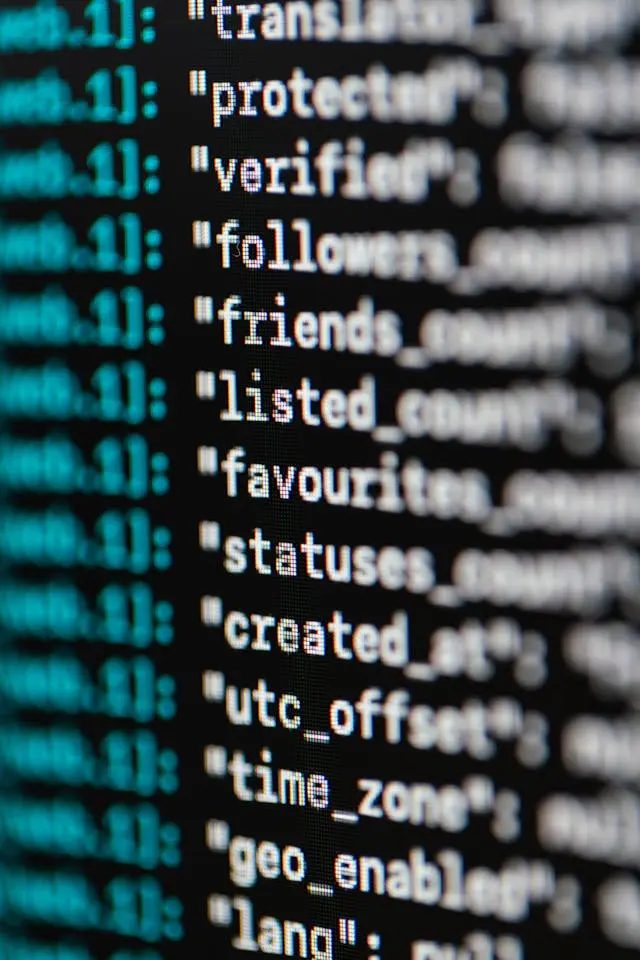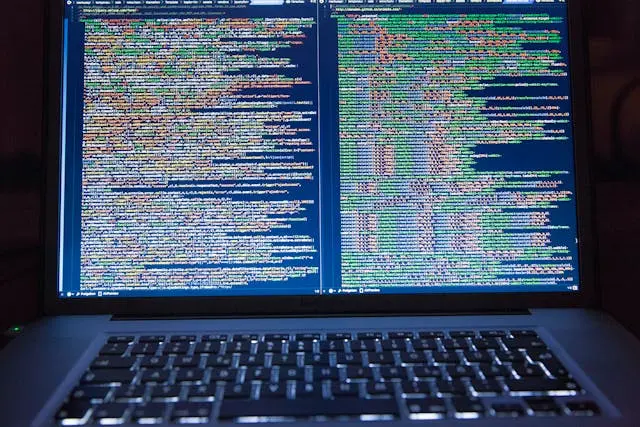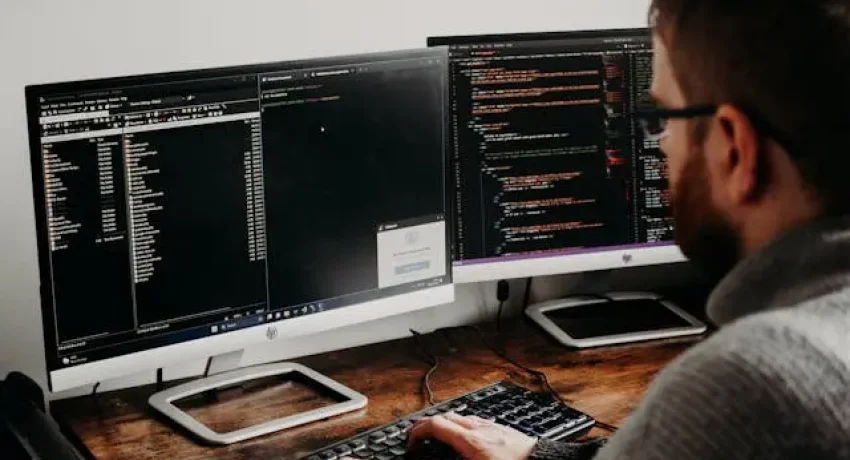AI WON’T REPLACE DEVELOPERS—IT WILL EMPOWER THEM
Will artificial intelligence replace developers in the near future? It’s a bold question that’s echoing across the global tech community. With rapid advances in generative AI, machine learning, and automation tools, many developers are beginning to question their own relevance in the future job market.
But the reality is far more nuanced. In 2025, AI is not a threat—it’s a partner. Rather than replacing human developers, AI is enhancing their capabilities, transforming workflows, and unlocking new levels of efficiency and innovation.
Let’s dive deeper into how this powerful synergy between human creativity and machine intelligence is shaping the future of software development.
UNDERSTANDING THE DIFFERE

NCE: AI AND HUMAN INTELLIGENCE
AI (Artificial Intelligence) refers to systems designed to perform tasks that typically require human intelligence, such as decision-making, problem-solving, pattern recognition, and natural language processing. Machine learning (ML), a branch of AI, allows systems to learn from data and improve over time without explicit programming.
As of 2025, AI tools can generate code snippets, identify bugs, optimize performance, and automate repetitive tasks. But AI is not autonomous—it lacks intuition, empathy, contextual understanding, and ethical judgment. These are qualities that only humans, particularly skilled developers, bring to the table.
2025: THE CURRENT ROLE OF AI IN DEVELOPMENT
The global AI software market is projected to reach $207 billion by the end of 2025, up from $137 billion in 2023, according to Statista. A growing portion of this market involves AI-powered development tools, such as code auto-completion, AI pair programming assistants, and automated testing frameworks.
In fact, over 58% of software development teams now use AI tools to accelerate their workflows. Yet, these tools don’t operate in isolation—they require human oversight, customization, and contextual guidance to be effective.
HERE’S WHAT AI IS DOING WELL IN 2025:
- Automated Code Generation: Tools like GitHub Copilot and Tabnine suggest boilerplate code and repetitive logic structures.
- Bug Detection: AI systems analyze codebases to identify vulnerabilities faster than manual review.
- Data-Driven Optimization: Machine learning models suggest performance enhancements based on usage analytics.
- Test Automation: AI automatically generates and executes test cases, improving software reliability.
Despite these advancements, the core architectural decisions, user experience design, and ethical oversight remain firmly in the hands of human developers.

WHY AI CAN’T REPLACE DEVELOPERS—NOW OR IN THE FUTURE
Let’s be clear: AI is not “coming for your job.” It’s transforming the way your job is done.
1. ALGORITHMIC UNDERSTANDING REQUIRES HUMAN INTELLECT
AI can follow logic but cannot craft it from scratch with the same insight as a developer. Designing scalable systems, building new algorithms, and understanding architecture requires analytical thinking that AI doesn’t possess independently.
2. PROBLEM SOLVING IS A HUMAN DOMAIN
Developers often deal with complex business problems, edge cases, and ever-changing client requirements. While AI can process data, it cannot weigh priorities, navigate ambiguity, or reason through complex trade-offs like a human can.
3. CREATIVITY CAN’T BE REPLICATED
Software isn’t just logic—it’s creativity. Designing intuitive interfaces, crafting unique algorithms, or developing games, apps, and tools that delight users requires innovation. AI can mimic, but not invent.
4. ETHICS, BIAS, AND RESPONSIBILITY
In 2025, one of the biggest risks with AI is ethical misuse. Developers are now increasingly responsible for ensuring that AI applications are fair, transparent, and bias-free. Machines can’t take accountability—people can.
HOW DEVELOPERS CAN THRIVE WITH AI IN 2025–26
Rather than fearing AI, developers must adapt and evolve. Here are four actionable ways developers can stay ahead:
EMBRACE AI TOOLS TO BOOST EFFICIENCY
Use AI to automate routine coding, documentation, and testing. This frees up your time to focus on strategy, creativity, and architecture.
LEARN AI AND ML FUNDAMENTALS
Upskill by understanding the core principles of machine learning, neural networks, and data engineering. These skills will be vital in building or integrating future AI systems.
FOCUS ON SOFT SKILLS
Communication, collaboration, ethical reasoning, and adaptability are irreplaceable. Developers with emotional intelligence and leadership will lead the tech teams of tomorrow.
KEEP LEARNING AND EXPERIMENTING
Stay updated with new programming paradigms, tools, and frameworks. In 2025, frameworks like PyTorch, TensorFlow, and LangChain are evolving fast. Lifelong learning is no longer optional—it’s essential.
REAL-WORLD EXAMPLE: AI CO-PILOTS, NOT REPLACEMENTS
Companies across fintech, healthcare, and e-commerce industries now deploy AI-powered co-developers to assist human programmers.
For example, in a 2025 global developer survey by SlashData, 71% of developers using AI tools reported increased productivity, while only 6% expressed fear of job displacement. Why? Because AI handles tedious parts of development—allowing humans to focus on strategic thinking.
At ecombyz, we believe this partnership is the future. Developers aren’t being pushed out—they’re being pulled into higher-value roles, including AI integration, data engineering, and human-centered design.
THE FUTURE: DEVELOPERS AS AI INTEGRATORS AND STRATEGISTS
The job title “software developer” is evolving. By 2026, roles like AI integrator, ML system architect, and prompt engineer will be common. These hybrid roles blend traditional programming with AI fluency.
What does this mean for you? You must not only write code—you must understand, guide, and collaborate with AI.
Your future success lies in learning how to build with AI, not compete against it.
FINAL THOUGHTS: AI EMPOWERS, IT DOESN’T REPLACE
Artificial Intelligence is here to stay. But rather than fearing its presence, developers should view it as a powerful ally. In 2025 and beyond, AI won’t replace developers—it will redefine what development means.
Those who adapt will find themselves more productive, creative, and indispensable than ever. The best developers of the future won’t be the ones who write every line of code manually—they’ll be the ones who know which lines to let AI write, and which ones to craft themselves.
Your skill, vision, and ethics are irreplaceable.
Ready to future-proof your development career? Stay updated with the latest tech trends and AI tools at www.ecombyz.com










